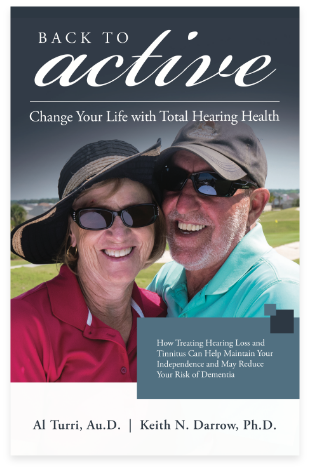Gifts are available on a first come, first serve basis. One gift per household.

What Is An Audiologist?
An audiologist is a licensed health care professional who specializes in the evaluation, diagnosis, and treatment of hearing loss, tinnitus, and vestibular (balance) related disorders. Audiologists have the ability to treat patients across the entire age spectrum, from infancy to late adulthood. Audiologists are most commonly known for their ability to prescribe and fit hearing devices, thanks to their extensive knowledge on the auditory system and its associated vestibular components. Patients looking into the use of a hearing device, cochlear implant, or hearing-related surgical monitoring will need to work closely with audiologists to ensure proper treatment and maintenance.
The Importance of Education and Licensure
Audiologists are required to obtain licensure and registration in every US state, as well as in the District of Columbia and Puerto Rico. These stringent licensure regulations are complemented by extensive training and schooling – which results in a doctoral degree. In your search for an audiologist, you will most likely encounter a credential called the AuD, or doctor of audiology. This designation is a promise that your audiologist has undergone training from an accredited university graduate program in anatomy and physiology, hearing device and implantable technologies, vestibular function and processes, balance disorders, hearing loss, and the diagnosis of all other hearing related afflictions.
Audiologists are becoming more prevalent in the health care field, as hearing loss has become the number one sensory deficit among older adults Hearing loss, a progressive degenerative disorder is pervasive problem amongst the aging population, one that is now found to be closely associated with early onset dementia. Audiologists can now be found working in hospitals, clinics, private practices, ENT (Ear Nose Throat physicians) offices, schools, and government or military medical facilities. Even though the demand for audiologists is still on the rise, the profession needs some demystifying from a patient perspective. Audiologists are commonly associated with their colleagues, ENTs.
Audiologists and ENTs
While audiologists and ENTs work together through referrals and consultations – there are distinctive differences between the two types of care providers. The simplest way to recall their differences is to keep in mind that audiologists are highly focused on the auditory system and hearing loss, while ENTs specialize in diseases of the ear, nose, and throat. If an audiology patient at The Villages Health is found to be suffering from a condition outside the scope of audiology services, our audiologists will partner with you to get you a referral and seamless care coordination.
An ENT will diagnose your chronic ear infection, but an audiologist will assess your hearing and suggest a treatment plan. If you’re struggling to hear your loved one talk to you , it’s time to see an audiologist. Their expertise doesn’t stop once the hearing devices are prescribed and fitted. Audiologists are qualified to diagnose and treat hearing loss, dizziness, balance problems, tinnitus, central auditory processing disorders and earwax removal. Additionally, they are qualified to screen and refer for other conditions like autoimmune inner ear disease (AIED), cognitive decline, punctured ear drums, sudden deafness, and acute ear infections. A good audiologist will also employ Real Ear Measurements (REM) analysis to assess a hearing device’s efficacy and gain levels for optimal hearing, as well as performing preliminary hearing screenings to determine the severity of your hearing loss.
If you’ve been experiencing symptoms of hearing loss such as a ringing in the ears, difficulty hearing the telephone or television and trouble understanding others – The Villages Health Audiology can help. Many people wait too long to address their hearing problems – but it doesn’t have to be that way. Get the hearing health care you deserve. The Villages Health Audiology will partner with you to deliver first-class compassionate care to suit your personal needs and help you achieve total hearing health.
More Resources